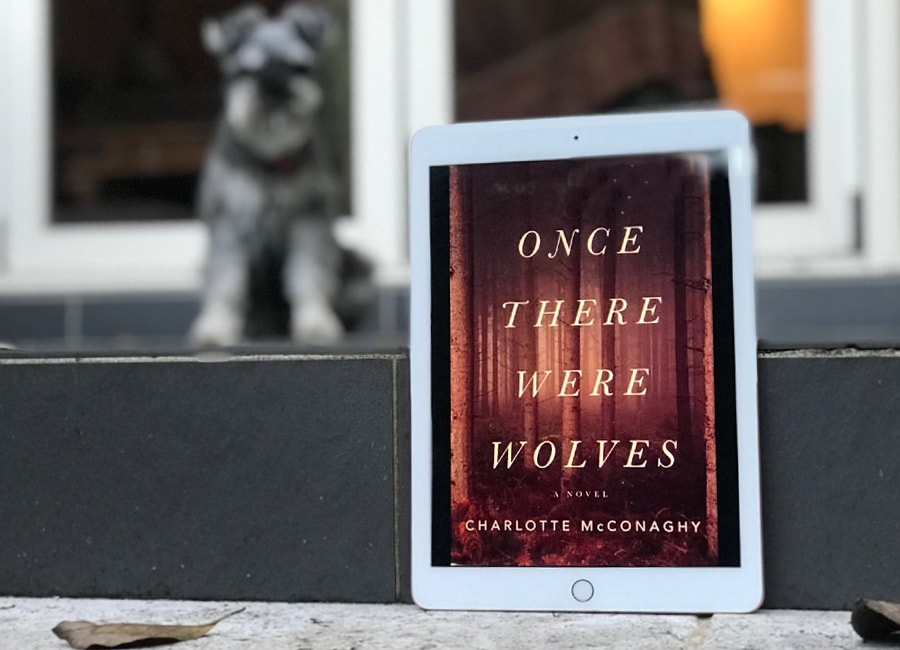|
Published by Penguin Random House, August 2021 | Fiction, Australian author Australian author Charlotte McConaghy has interlaced a heady mix of themes in Once There Were Wolves.
Think domestic abuse, buried trauma, a rare neurological condition, ecological catastrophe, death, love and, infused throughout it all, the mystery of wolves. Part eco-thriller, part murder mystery, McConaghy’s metaphorical messages are as earnest as in her internationally best-selling debut, Migrations, and made all the more atmospheric by the novel’s setting – in Migrations it was Greenland; this time, the Scottish Highlands. Protagonist Inti Flynn, who describes herself as “a bad-tempered Australian who finds it hard to hide contempt”, heads up a team of biologists on a mission to reintroduce wolves into the Scottish Highlands, some three centuries after they were hunted to extinction. This is a fictional take on a scenario that may play out in reality if conservationists win the complex debate currently underway in the UK to “rewild” the highlands. By bringing back these apex predators it’s hoped balance will be restored to the ecosystem, as it did with the reintroduction of wolves in 1995 to Yellowstone National Park in the US. Without them, biodiversity has been crippled as deer populations have been able to swell to ecologically unsustainable levels, thus preventing woodlands from spreading. Reflecting the reality, Flynn and her fictional team face fierce opposition from locals concerned about what the wolves will do to their livestock and farming lifestyle. Their fear of the predators is palpable, born from centuries of prejudice, much to the contempt of Flynn who thinks the locals should be far more concerned about the destruction of the planet. “If you truly think wolves are the blood spillers, then you’re blind,” she tell a crowd of locals at a town hall meeting. “We do that. We are the people killers, the children killers. We’re the monsters.” While the release of the 14 wolves provides a creatively imagined storyline ensuring the reader becomes as invested in their survival as Inti’s team, there is a whole lot more going on in this novel. Along with Inti’s unnervingly deep anger with the community’s intolerance for the rewilding project, she also becomes involved in the life of a local woman with a violent husband. It soon becomes clear that both Inti’s rage and her desire to protect the local woman are driven by a set of personal historical traumas affecting her and her twin sister Aggie. The drip feeding of details from these past events, methodically illuminate why Inti’s twin, once vibrant, is now almost catatonic. As if that wasn’t enough of a wild plot, Inti also has mirror-touch synesthesia. This is a rare neurological condition that means Inti’s brain recreates the sensory experiences of the living creatures she is with – both people and animals. As she explains: “If I see it I feel it, and just for a moment I am them, we are one and their pain or pleasure is my own.” Again, when we learn this, it makes sense of the striking opening line of the novel, Inti says: “When we were eight, Dad cut me open from throat to stomach”. We discover this is Inti’s synesthesia kicking in as she watched her father gut a rabbit he’d hunted as part of his subsistence lifestyle. As a wolf biologist, it’s a tough condition, given it means she feels the wolves hunger, their fear and pain. To manage it she needs to take problematic precautions like shutting her eyes before firing tranquilizer darts. The various strands of this complex plot come to a head when Inti stumbles, literally, across a local farmer, dead. The split second decision she takes sets up the novel for a thrilling mystery close as the cause of the death is uncovered. There is a lot to digest this novel. But underlying the complex plot, McConaghy delivers a clear, heartfelt message reflective of two key issues central to the zeitgeist of our times: that humans need to put aside their greed and privileges if the planet is to be saved from destruction; and that domestic violence – or “men hurting women” – needs to end. Comments are closed.
|
Categories
All
Archives
May 2024
|

